November 2024 | 3636 words | 14-minute read
In 2017, after he took over as the Chairman of Tata Sons, N Chandrasekaran laid out his vision of One Tata for the group. “One Tata is a concept I have reflected on for a long time over my journey with the Tata group, and it got crystallised distinctly in my mind after I took over this role,” he had said then.
“One Tata is a mindset,” he said. “What does it mean to be a part of the Tata group — for a company, for an employee, for a leader? What is it that we can do better together to draw on our collective strength, to leverage the relationships and partnerships, the know-how and expertise, the goodwill and fortitude we have at our command as a group? The synergetic integration of Tata companies can make a significant difference to each individual within the Tata ecosystem. That, in turn, can make a difference to Tata Sons and to society… Once the ‘One Tata’ concept is ingrained in our DNA, it will be a tool that helps us progress in every dimension.”
It set the group on a journey of synergised endeavours — one of the pillars of the Chairman’s early 3S strategy of Simplify, Synergise, Scale — that have seen the group grow from strength to strength. In February this year, the Tata group’s combined market capitalisation soared past ₹30 lakh crore, making it the first Indian conglomerate to cross this milestone. By August, this number had crossed ₹35 lakh crore.
As the group leaps forward with Speed — a pillar of the Chairman’s expanded 6S strategy along with Supply Chain and Sustainability — this story looks at how group companies are harnessing the power of synergies to leverage global mega trends like supply chain, artificial intelligence (AI), new energy, talent and, thus, fuel growth.
One Tata is a mindset... The synergetic integration of Tata companies can make a significant difference to each individual within the Tata ecosystem. Once the ‘One Tata’ concept is ingrained in our DNA, it will be a tool that helps us progress in every dimension.” - N Chandrasekaran, Chairman, Tata Sons
Growth greater than the sum of its parts
Nowhere has the impact of One Tata been more visible than in the turnaround at Tata Motors and its cascade of benefits on companies like Tata AutoComp Systems (Tata AutoComp).
In 2017, the Tata Motors passenger vehicle (PV) business, with less than 5% share of the segment in the market, was bleeding almost ₹4,000 crore a year. Riding on the belief that there was still a future for PVs and that this future would be electric, Mr Chandrasekaran set a target to build an electric vehicle (EV) in less than a year.
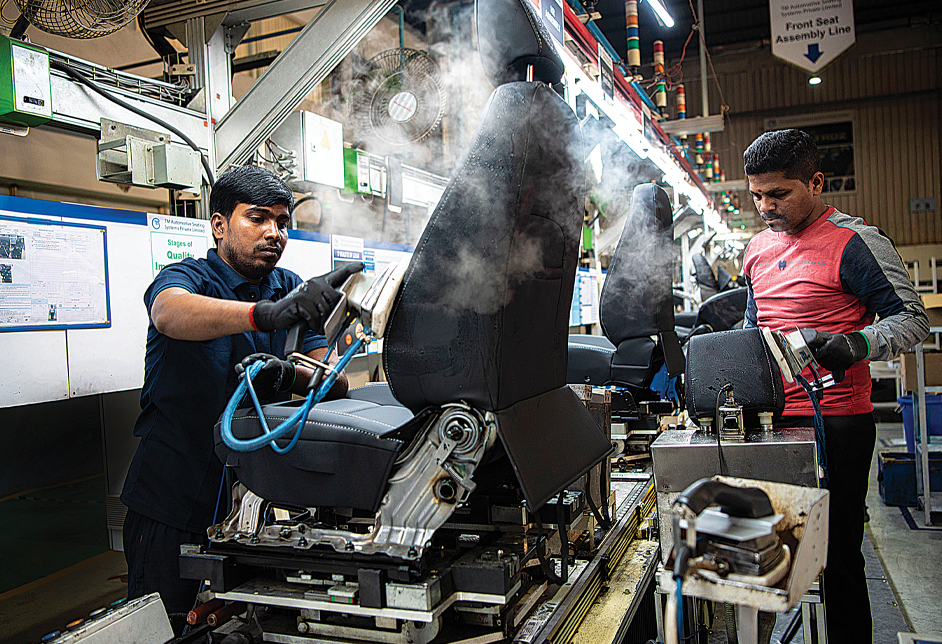
The challenge, which experts believed would take nothing less than four years, was tackled by a One Tata team from Tata Motors, Tata AutoComp, Tata Technologies, Tata Consultancy Services (TCS) and Tata Power. A synergised effort that made it possible for Tata Motors to unveil the Nexon EV by 2019.
Mr Chandrasekaran then launched the Tata UniEVerse in 2020, calling on group companies to work together — to not just build electric mobility solutions but also help accelerate EV adoption in India. The power unleashed by this One Tata endeavour is a story written in the performance numbers of the participating companies.
Tata Motors has become the No 1 EV player in India. In FY24, the company reported a net profit of ₹31,807 crore and shareholders received the highest payout in the automaker’s history. The company’s market cap crossed 4 lakh crore, making it the 10th most valuable car maker in the world.
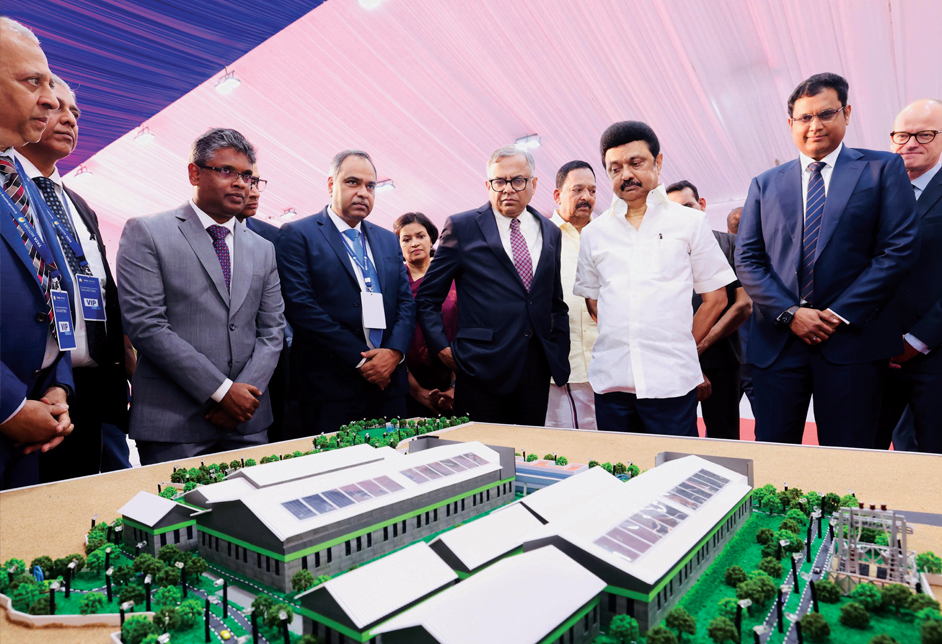
Tata AutoComp, which designed, engineered, manufactured and supplied EV battery packs and battery management systems, electric motors, controllers, reducers and integrated drivetrain solutions — all vital for Tata Motors’ EV ecosystem — has emerged as the second biggest auto component maker in India. It was No 18 a few years ago. The EV business accounts for 30%+ of Tata AutoComp’s total turnover.
Tata Power, which set out to build India’s largest EV charging station network, has become the first EV charging solutions provider to power 100 million+ green kilometres across segments. Its EV chargers dot more than 60% of India’s registered national highways.
And Tata Technologies, which works with Tata Motors and JLR as anchor clients across the product value chain, made a historic debut on the Indian bourses in 2023. Its Red Herring Prospectus noted, “We believe that we are well positioned to benefit from the Tata group’s business priorities to increase investment in EVs, aerospace and defence.
The One Tata philosophy further benefits group companies with a focus on utilising scale, simplification and synergies between Tata group companies. In addition to benefiting from the high standards of corporate governance and brand value associated with the Tata group, we also have the opportunity to leverage and benefit from the Tata group’s global network for exploring potential business opportunities and acquiring direct access to senior decision makers at potential end clients.”
Driving into the Future
As the understanding of the opportunities latent in the One Tata philosophy matures, so do the synergies at play in the group.
Tata Motors has collaborated with JLR to develop Avinya, which will mark its entry into the premium e-SUV segment. For Tata Motors, the synergy, leveraging JLR’s mature electrical and electronic architecture, is expected to reduce cost and time to market and unleash opportunities to offer new-age features. For JLR, this is expected to help build scale for sourcing. JLR, meanwhile, has started manufacturing its flagship Range Rover and Range Rover Sport in India, making it the first country outside the UK to do so. In September 2024, a groundbreaking ceremony was held in Tamil Nadu for the construction of a world-class manufacturing facility that will roll out next-gen Tata Motors and JLR vehicles. Together, the two companies have set the stage for exporting made-in-India EVs.
Tata Technologies, for its part, engineered a smart manufacturing solution for Tata Motors’ new plant in Sanand, Gujarat, enabling the company to increase its annual production capacity by 3,00,000 units. At JLR, it is delivering end-to-end integrated Enterprise Resource Planning to accelerate the digital transformation of the automaker’s industrial strategy. It highlighted that “strengthening and leveraging Tata group synergies” is an “important track within the company’s business outlook” in its latest (FY24) annual report.
The foundational support from Tata Motors and JLR has, in fact, helped Tata Technologies and Tata AutoComp to swiftly evolve beyond their dependency on these anchor clients. Tata Technologies now collaborates with other group companies like Agratas, Air India and Tata Steel, in addition to serving global clients. Similarly, Tata AutoComp extends its expertise to other Indian and international OEMs.
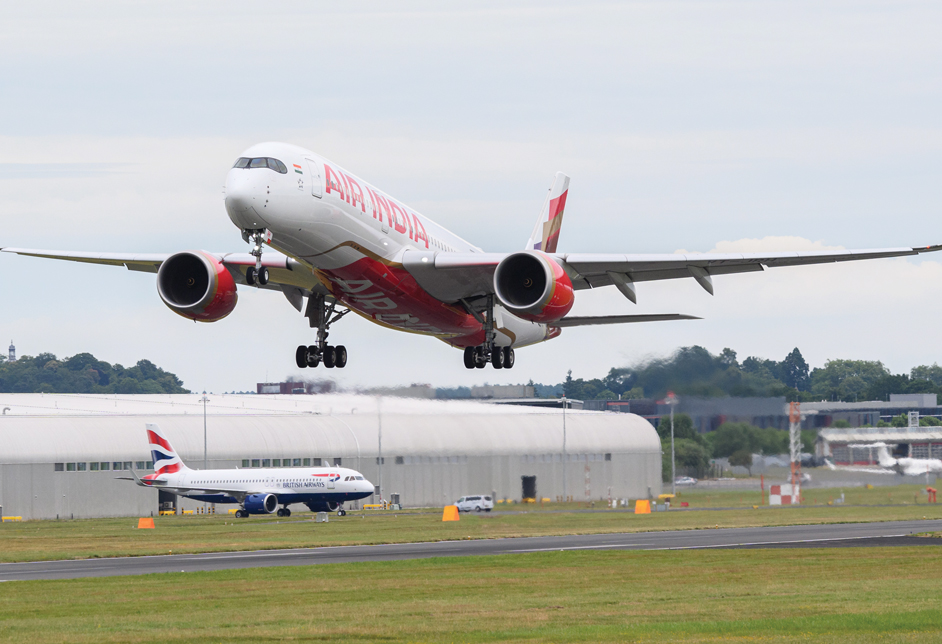
Tata companies have also begun capitalising on synergies to offer bundled complementary capabilities. Tata Communications and TCS formed the TCS Alliance, a partnership that brings their unique strengths — as a complete digital ecosystem enabler and an IT services leader — together to offer end-to-end digital transformation for enterprises worldwide as a single solutions provider. Earlier this year, TCS, Air India and Tata Advanced Systems (TASL) showcased the One Tata strength for the first time at the Farnborough International Airshow in the UK, demonstrating how the group can deliver comprehensive solutions to the aerospace and defence sectors.
Building the nation, together
Leveraging synergies has enabled Tata companies to execute marquee projects — some of national importance.
Tata Projects, bolstered by One Tata synergies from Tata Consulting Engineers, Tata Steel, TCS, Voltas, Titan, Tata Motors and Tata Power, constructed India’s new Parliament building in record time for its inauguration in 2023.
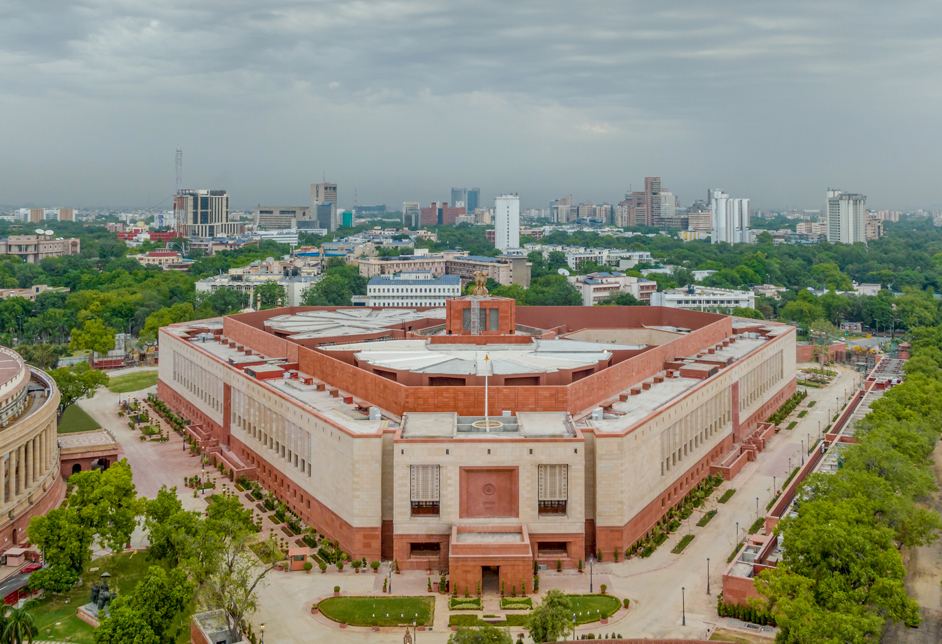
Last year, TCS and Tejas Networks also won the order for BSNL’s pan-India 4G/5G network, making them the sole supplier of 4G/5G RAN equipment for one of the largest mobile networks in the world. “TCS collaborated with Centre for Development of Telematics and Tejas Networks to design and develop an indigenous telecom stack,” TCS noted in its FY24 annual report. “This complex initiative was undertaken with significant efforts to design the equipment, establish a lab and testing infrastructure of scale besides building the entire manufacturing ecosystem in India. … Post the satisfactory evaluation of the indigenous telecom stack, BSNL awarded TCS the mandate to supply, install and commission the pan India 4G/5G mobile network across 100,000 sites.” Tejas Networks is the sole supplier of 4G/5G baseband and radio units for this network.
The wind beneath new wings
One Tata synergies are now proving instrumental in laying foundations for new business and creating opportunities of scale for the group as a whole.
Tejas Networks, as the supplier of 4G/5G baseband and radio units for BSNL’s pan-India network deployment, received its single largest purchase order till date, of Rs 7,492 crore, from TCS. The company added in its FY24 annual report: “The successful delivery of the BSNL 4G/5G project in FY25, is expected to open up new vistas for us. Many countries in the emerging markets of Africa, Southeast Asia and Latin America continue to have a large base of 2G/3G subscribers and are on the lookout for alternative vendors for their 4G/5G rollouts.”
Tata Electronics, which marks the group’s foray into semiconductor manufacturing, has tapped into TCS’ existing domain expertise. As it races to produce the first made-in-India chip, the partnership will allow it to leap off TCS’ experience in integrating research, architecture, design, development and manufacturing support to design digital, analog and mixed signal chips. The company will further benefit from TCS’ new Semiconductor Center of Excellence, which is reimagining the semiconductor fabrication value chain. It is also drawing on the group’s collective strength to rapidly build industry partnerships. In September 2024, Tata Electronics, Tata Motors and Tejas Networks signed a memorandum of understanding (MoU) with the multinational Analog Devices to explore opportunities for semiconductor manufacturing in India and use the latter’s products in Tata applications like EVs and network infrastructure. “The joint effort is expected to be mutually beneficial and is a significant step in establishing a robust electronics manufacturing ecosystem in India both for domestic and global consumption,” the Tata group said in a statement. And with its imminent success in chip manufacturing, Tata Electronics stands to reduce supply chain issues for Tata Motors, giving further impetus to the latter’s growth.
Agratas, meanwhile, began its journey with anchor customers Tata Motors and JLR delivering demand at scale to establish their global battery business and technical expertise as they expand into other segments and sectors. The company has also partnered with Tata Technologies to accelerate product development for global customers in the mobility and energy sectors.
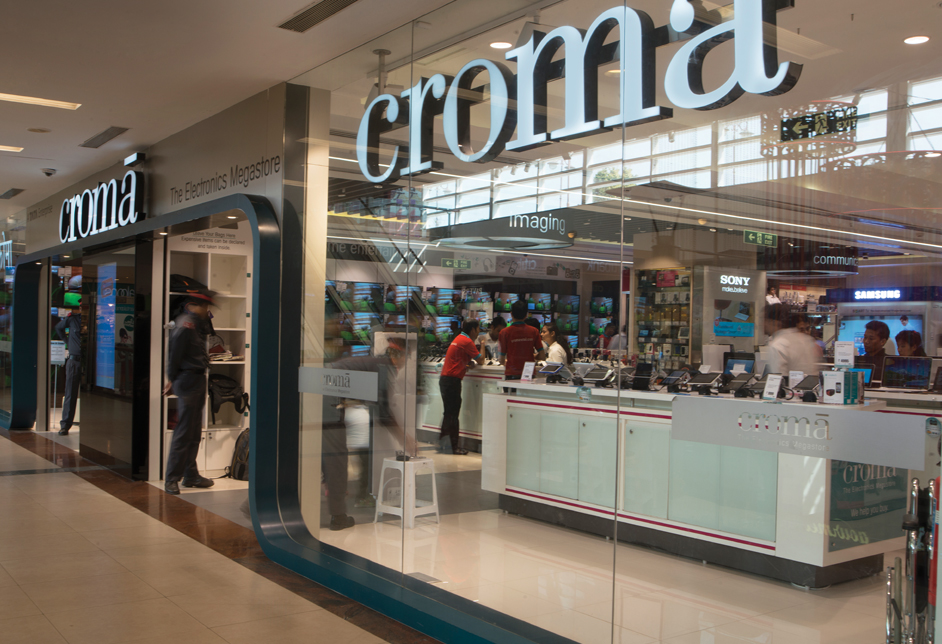
Coded for new frontiers
Leaning on the One Tata pillar has helped the group’s new and old businesses alike to keep pace with and even get ahead of the curve when it comes to digital transformations and new digital frontiers like AI, a global megatrend. Addressing shareholders at TCS’ annual general meeting this year, Mr Chandrasekaran noted, “GenAI [generative AI] will have a very significant impact on nearly every sector and every country in the coming years… Enterprises have already invested in cloud, data infrastructure and processing power, and these will aid artificial intelligence, particularly generative AI. GenAI will not only improve productivity but will also create impact in many sectors in a way that we have not imagined before.”
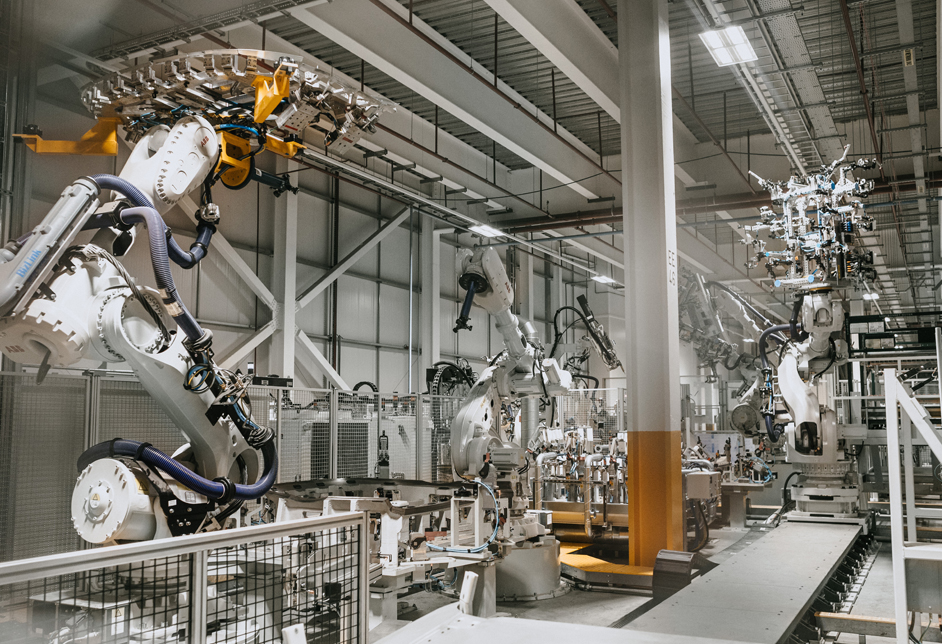
“In the Tata group today,” he added, “across our companies, we are already involved in doing more than 100 GenAI projects, and all these projects are demonstrating very tangible business impact.”
TCS, which has a business unit dedicated to group synergies, has partnered with Tata companies across sectors and continents in this endeavour as well as other digital transformations.
In August 2024, TCS OmniStore™, its award-winning AI-powered commerce platform, enabled 100% in-store mobile checkout for all 500+ Croma stores across 160+ major cities. A first in the Indian retail industry, this platform delivers not just a faster checkout but also a best-in-class omnichannel shopping experience across touchpoints. This marked the latest in Croma’s transformation journey with TCS, spanning the overall enterprise, from creating a more seamless and agile customer experience to robust and scalable business process.
With its deep experience providing IT solutions for global airlines, TCS is playing a pivotal role in Air India’s technology transformation across operations, supply chain and customer experience. ignio™, its cognitive automation solution, has been deployed by Tata Steel Europe as its AI platform for IT operations. Tata Steel Europe has also partnered with TCS for projects ranging from developing a maintenance technology road map to tackling supply chain challenges, improving delivery accuracy from 60% to 95%. TCS’ expertise in the manufacturing sector was also leveraged by Tata Chemicals, when it embarked on a digital industrial journey to improve process efficiency, and by Tata AutoComp for its Industry 4.0 journey.

And it’s not just TCS. There is increasingly robust cross-pollination of digital expertise as group companies sharpen their focus on transforming their businesses for the digital world. Tata Technologies is helping JLR accelerate the digital transformation of its industrial strategy, starting at the core UK production facilities, with subsequent deployments to global locations. Tata Communications, meanwhile, has partnered with JLR to future-proof its digital transformation and pave the way to Industry 4.0. It will deploy its cloud-first, software-defined wide area network technology to connect all 128 JLR sites. This advanced global connected capability — between the global HQ and plants, warehouses, sales centres, data centres and cloud services — will significantly boost supply chain efficiency and security.
This robustness of collaboration is allowing more and more group companies to not just keep pace with global trends but also set benchmarks for innovation.
Innovating synergies
Working together on innovations is creating opportunities for Tata companies to redefine their industries.
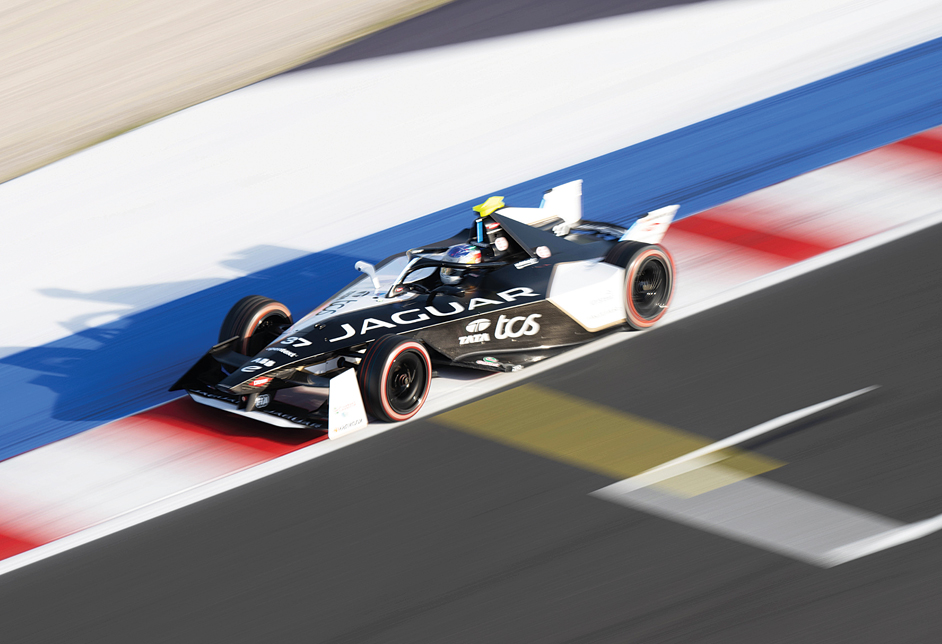
Jaguar TCS Racing exemplifies this synergy. Formula E serves as a real-world testing ground, with race-to-road learnings used to support future road car programmes, and JLR and TCS are pushing the boundaries of automotive efficiency by leveraging collective knowledge. In 2024, Jaguar TCS Racing won the ABB FIA Formula E Teams’ World Championship with the Jaguar ITYPE 6 — “the world’s most technically advanced allelectric singleseat race car” — and also won the newly created Manufacturer’s Trophy. The cuttingedge technology used in the I-TYPE 6 will assist Jaguar as it moves towards becoming an all-electric, modern luxury brand from 2025. Racing in the world’s first net zero carbon sport also supports their commitment to have zero tailpipe emissions and to achieve carbon net zero across its supply chain, products and operations by 2039.
A partnership between Tata Elxsi and Tata Motors has led to the creation of the Gen 3 HMI design, a futuristic digital cockpit experience that was initially designed for EVs and innovatively adapted for internal combustion engine vehicles. The design won the German Design Award 2024 for Excellent Product Design.
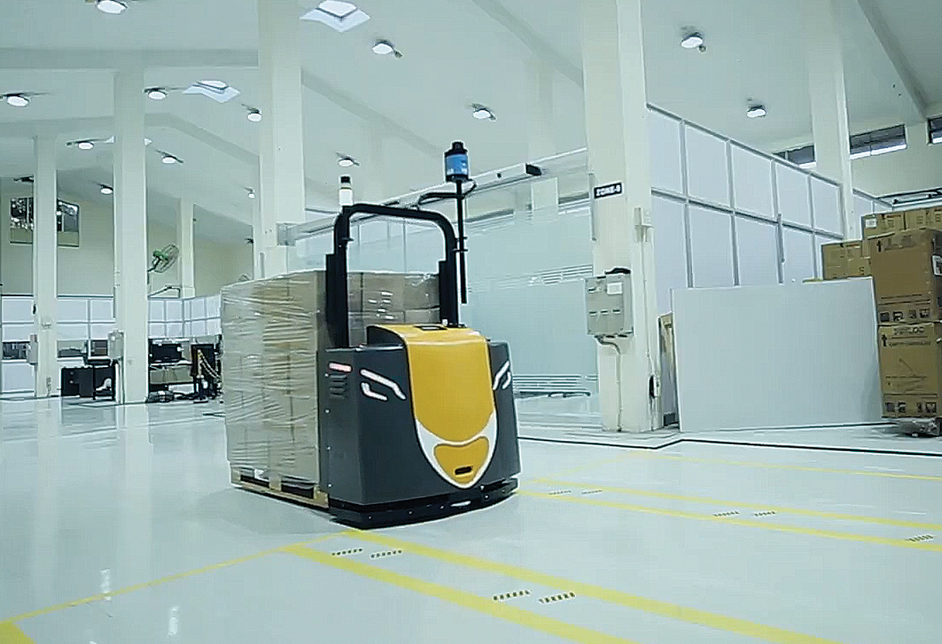
The true extent to which the spirit of One Tata is bringing together the diverse expertise of group companies to create groundbreaking solutions is increasingly visible at Tata InnoVista, a unique platform that fosters a groupwide innovation culture. Take, for instance, the PalPicker. TCS and Titan’s award-winning autonomous mobile robot platform can revolutionise automation in the e-commerce industry. Or FerroHaat™, an award-winning collaboration between Tata Steel and TCS that resulted in the creation of a first-of-its-kind app to digitally organise the informal and fragmented Indian scrap market. It is helping Tata Steel build a robust supply chain for its new Steel Recycling Business.
Synergies like these have allowed group companies to push the boundaries of what’s possible for the industry and the planet.
One Tata, infinite possibilities
The One Tata spirit has extended beyond business to the greater good within group companies. In many cases, it is helping further sustainability ambitions.
Several Tata companies have leveraged the expertise and resources of Tata Power in this endeavour. Tata Steel has collaborated with the company on various projects to increase the balance of renewables in its power consumption. These include a definitive agreement to source 379 MW of captive renewable energy from Tata Power, which will reduce 50MT of carbon emissions over the 25-year contract period for Tata Steel. This arrangement will replace part of the coal-based power generation in the latter’s Jamshedpur plant and cater to the Kalinganagar facility’s requirements and the Ludhiana electric arc furnace project. Further, the two companies are in discussion to set up a captive solar power plant with 70MW capacity in Maharashtra. This will generate ~17MW of renewable power and reduce 115KT of carbon annually, making ~49% of the Tarapur and Khopoli plants power green. With this, Tata Steel’s total installed captive renewable power capacity will be 1,036MW, meeting ~16% of its power requirement.
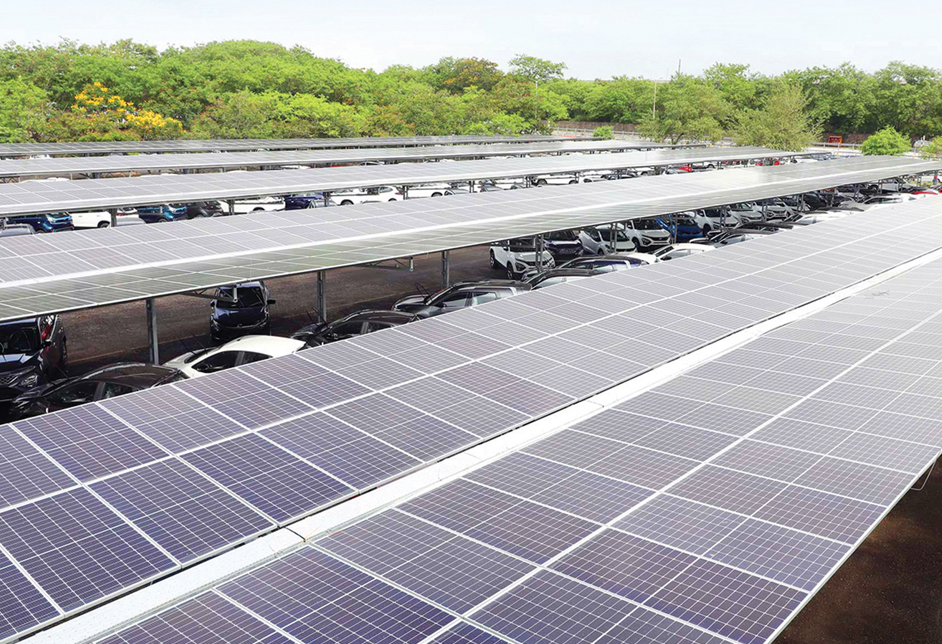
In addition to the pivotal role Tata Power is playing in building India’s EV charging ecosystem, critical to Tata Motors’ EV ambitions, the two have also collaborated for the former’s own greening operations — from building solar car ports to developing on-site solar power capacity at its manufacturing facilities. Indian Hotels Company Ltd (IHCL), meanwhile, has collaborated with Tata Power to set up EV charging points across its properties.
In other cases, the One Tata spirit is being effectively leveraged to scale community endeavours, be it in the way companies have joined hands to accelerate their own initiatives or how they have come together, each drawing on their own strength, in times of crisis.
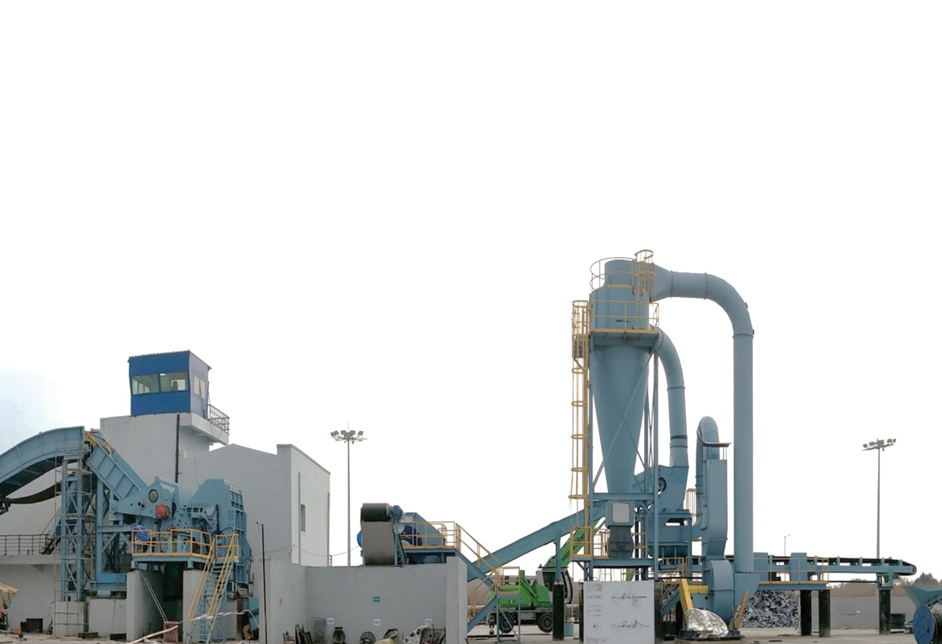
Tata Power Community Development Trust partnered with Tata Elxsi to drive their Pay Autention initiative forward. It leveraged Tata Elxsi’s innovative digital therapeutics solution, TEcare, to accelerate the development of E-Sanidhya, a phygital platform that supports neurodiverse individuals in India. Approximately 1 in every 68 Indian children is estimated to be affected by autism. There are millions of Indian parents and caregivers of neurodiverse children who struggle to find the resources, information and professionals they need to help their children. “The portal bridges gaps in access to care and promotes awareness, fostering inclusion and support for neurodiverse individuals across the country,” Tata Power noted. “Inspired by human network connectivity models outlined in the Bridgital Nation, co-authored by our Tata Chairman Mr N Chandrasekaran, this model acts as a force for linking many actors and institutions for collective goals.”
IHCL and Tata Steel Foundation (TSF) have joined forces to empower tribal home-cooks through the Tribal Cuisines capacity-building programme. This initiative has become an integral part of TSF’s Samvaad initiative, which fosters constructive dialogues among tribal communities.

The Tata group, represented through a One Tata team, also undertakes a range of activities while responding in the aftermath of a disaster, from emergency services to relief operations to long-term rehabilitation projects. Over the past six years, this One Tata team has reached out to 7.65 lakh+ people in disaster hit areas in India and Nepal, through relief measures and extensive rehabilitation programmes. Monetary support from 100+ Tata companies across geographies has poured in to provide relief to the people affected by all the disasters that have been responded to.
The Tata group’s journey of synergising has been transformative at every level. From propelling unprecedented growth for companies and the group at large to invigorating its foray into new businesses that are taking the lead on global megatrends, from transformative digital advancements to innovations that can revolutionise industries, from scaling sustainability ambitions to compounding the impact of community development, the milestones on this journey have successfully underscored One Tata and its infinite possibilities.
- Monali Sarkar





















